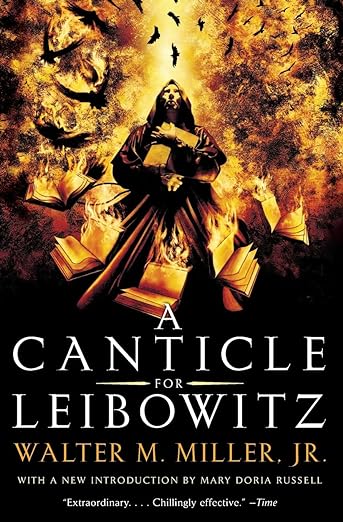As with any tale, it is useful to begin at the beginning. And in my instance, all my beginnings related to Austrian economics are found at Grove City College. How I ended up at Grove City is an extremely unlikely journey with zigs and zags, the probability of which defies all calculation. I was not a focused student in high school or even as I began my college career. My interests were focused elsewhere and my dreams were directed at a life far removed from anything associated with the “life of the mind”.
Once I got the bug to study economics, my professor Dr. Hans Sennholz guided my path of study with his entertaining and enduring lectures (I can still hear his voice 40 years later) and the books he encouraged me to read, which included Frederic Bastiat’s Economic Sophisms, Henry Hazlitt’s Economics in One Lesson and Milton Friedman’s Free to Choose, but also Carl Menger’s Principles of Economics, Eugen Bohm-Bawerk’s Capital and Interest, and Ludwig von Mises’s Theory of Money and Credit, Socialism, and Human Action. Before I graduated I had read Adam Smith’s The Wealth of Nations, Jean-Baptists Say’s Treatise, David Ricardo’s Principles, John Stuart Mill’s Principles, F.A. Hayek’s The Road to Serfdom, Israel Kirzner’s The Economic Point of View and Murray Rothbard’s Man, Economy and State. Sennholz also made sure we read Marx, Keynes, Veblen, and Galbraith. I should also acknowledge besides these classic works, I read everything Sennholz himself had published (in particular The Age of Inflation) as well as became a regular reader of The Freeman, and other writings from the staff at the Foundation for Economic Education.
My Philosophical Vision and the Critique of Scientism in the Study of Man
My religion and philosophy teacher Dr. Reed Davis introduced me to the work of Michael Polanyi, and in particular the issue of presuppositions in scientific inquiry. I was able to see wider applications and a link between what I was learning about how to do economics and the philosophical discourse that Polanyi directs us to in thinking about the study of man. In Sennholz’s presentation, economics was a human science and was corrupted by the unwarranted intrusion of the methods of the physical sciences into its domain. Mises (and Hayek) had good reasons for this position, but Polanyi gave me additional reasons as I read him and learned from him.

My appreciation of Polanyi would only increase over the subsequent years as I was assigned to be Don Lavoie’s research assistant. Lavoie was busy working on finishing two books – Rivalry and Central Planning and National Economic Planning: What is Left – both would be published in 1985. Lavoie was blending Austrian economics with the growth of knowledge literature in the philosophy of science, including Polanyi. So my early exposure to Polanyi now turned out to be an advantage in my work with Lavoie.
The great strength was that Polanyi not only told us how to study, but what to study – the growth and utilization of knowledge in society. This, of course, feeds directly into Hayek’s research program. It turns out that Polanyi was also a critic of the socialist planned economy and the Soviet system in particular, just like Mises and Hayek. So many points of confluence emerged during that first year of graduate studies with what I had been prepared to learn from my time at Grove City.
Economics at the graduate level is a technical discipline, similar in many ways to engineering or a form of social physics. But economics as practiced in the Austrian School of Economics is a philosophical science and is more akin to the humanities than to science. I had to learn to live academically in two worlds at once. My education at Grove City College and the mentoring I received at George Mason prepared me to do precisely that. And hopefully, others can see that example in my writings and teaching in the subsequent decades.
Analytical Puzzles and Economic Science
As much as I was drawn to economics as a philosophical science, the puzzles of economics as understood by my peers in the discipline also intrigued me. The most fundamental puzzle was understanding how markets work. The textbook presentation didn’t seem to explain how the market economy came to be, just what the optimal result would be if the market did all its work. There was no real theory in the textbook of the working of economic forces, only a presentation of the consequences that follow from economic forces having worked. This was very unsatisfactory to me and became an obsession to fix in my mind and in the minds of others. Sennolz turned me on to the discipline in my youth, and I have never become bored thinking, talking, or writing about economic science and its history, method, and application.
I am a fan of economics and economists, just as I am a life-long fan of the New York Yankees. In fact, I think of the Austrian School of Economics as the New York Yankees of economic science. The Austrians have arguably won more major debates than any other school of thought- the methodenstreit; the socialist calculation debate; the monetary theory and policy debates; the methodological disputes on excessive formalism, naïve empiricism, and problems of aggregation; and the benefits of trade, migration, and development for the improvement of the least advantaged and most vulnerable populations on earth. Unlike the Yankees, however, many fail to recognize the championship pennants of Austrian economics. This fueled my curiosity to understand how such a disjoint between perception and reality could persist among economic scientists. So the sociology of the profession has been as much a subject of my attention as the substantive contribution to economic science of what I have called mainline economics. Mainstream economics reflects the current fads and fashion in the science, whereas mainline economics reflects the enduring substantive principles that the science teaches us about how the world works. Austrian economists explain how the world works, mainstream economists explain how the economics profession works – those are different things. Learning that was a long and difficult awakening process.

My philosophical interests, analytical interests, and sociological interests are all interconnected. And again I found my roots at Grove City College, in this instance the reading of Walter Miller’s A Canticle for Leibowitz, which taught me that knowledge does not just get recycled, but instead moves in fits and starts, with periods of progress stopped by periods of retrogression. Knowledge processes move through time in a sort of corkscrew shape – progress is made, but sometimes we cycle back only to move forward. Knowledge can be lost and must be found again before we can progress. Economics is particularly prone to this problem because, as Hazlitt taught in Economics in One Lesson, sound economics is built up through long chains of reasoning that many cannot or will not follow, and in the gaps vested interest groups will exploit the situation to push through their preferred narrative in the hope of pursuing their agenda. This was indeed the case during the period from 1920-1980 as we debated the merits of socialist economic planning – despite the evidence of economic deprivation and political tyranny. In the 1980s, the evidence against the socialist experiment mounted to such an extent even the most stubborn minds had to concede the points raised by Mises and Hayek. My early work as an economist was precisely on this topic, and my first three books detail the history, operation, collapse and transition from the socialist economy in East and Central Europe and the former Soviet Union.
How did economists get such a big experiment wrong?
The Academic Life
How does one pursue a career in the life of the mind? It is tied to an aspiration to allow curiosity to guide you and to adopt an unquenchable thirst for learning throughout your life. You must be free to ask questions that might not have answers, let alone easy answers.
It is the recognition that knowledge in society grows (remember the corkscrew), and that the more you know the more you know you don’t know. Teaching enables us to interact with young, curious, and compassionate minds eager to understand the world and to work to repair a broken world. Our job as teachers is to tap into that curiosity, to demonstrate to each generation how the tools of economic reasoning can be indispensable aids in unleashing their curiosity, and disciplining their thought so that they can pursue effectively the compassion they have and desire to do good in the world.
Conclusion
My life as an Austrian Economist has been great, and I hope to keep learning and working for decades to come. Austrian economics properly understood is a growth industry. We are constantly building for a better future and the promise of more and more scientific victories in the years to come. Being part of that heritage is a privilege.
[Editor’s note: You can read like Boettke- and with Boettke- in our No Due Date subscription book club.]


READER COMMENTS
Roger McKinney
May 17 2024 at 11:35am
Thank you for your many contributions to the science!
David Seltzer
May 17 2024 at 11:48am
Peter: Wonderful exposition. If I may, and with some humility, a person recently referred to me as an expert in my field. My response; “Thank you for the compliment. I am hardly an expert at anything. Any possible knowledge I could have about anything is greatly limited. Hayek makes that point.” BTW. I believe we met at a Hoover retreat some years ago.
Taylor wright
May 17 2024 at 2:09pm
Thanks, Pete, for taking us through your No Due Date reading program. Lots of authors and ideas that are new to me. My economics background was mostly mainstream.
Kurt Schuler
May 17 2024 at 6:36pm
Pete, you are spot-on in your comment that “The textbook presentation didn’t seem to explain how the market economy came to be, just what the optimal result would be if the market did all its work.” A consequence is that achieving the optimal result seems easy, rather than being hard as is actually the case, and economists judge the market economy by an unrealistic standard and pass along that error in judgment to students.
Monte
May 18 2024 at 12:47pm
A very clever and fitting analogy, sir! I, too, remain puzzled by this disconnect. As you point out, the Austrian school is concerned with reality. Economists should preoccupy themselves with nothing less. The debate, it seems, invariably reduces to the struggle between the individual and the State:
Highest regards.
spencer
May 19 2024 at 3:42pm
Human action isn’t random.
Knut P. Heen
May 21 2024 at 8:44am
How did economists get such a big experiment wrong? Some were simply too optimistic about economies of scale relative to the agency problem. Even in a “market economy” with significant economies of scale, a potential equilibrium is that all firms merge into one single super-firm. In that case, all markets will disappear and there is no “market economy” (even the employees could be paid in-kind). Coase’s boundary of the firm question is just as much a question about why do we have markets as a question about the size of the firm.
Comments are closed.